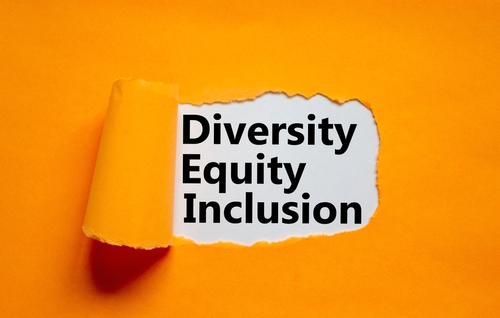2023 was a year of big change for Diversity, Equity, and Inclusion (DEI) initiatives in corporate America. Anti-DEI sentiment gathered momentum in 2023 with the so-called “war on woke,” used by politicians and covered extensively by the national media. Additionally, the Supreme Court’s decision to end affirmative action in university admissions added to the evolving landscape of perceptions about DEI. As we watched the news cycle play out different narratives, our two decades of experience in inclusive executive search at Bridge Partners told us there is far more to uncover about corporate DEI beyond these surface-level portrayals and culture wars.
In an effort to grasp the sentiments within companies first-hand, we conducted our inaugural DEI Barometer survey, engaging 400 C-suite and HR leaders. Contrary to prevailing media narratives, a striking 80 percent of large employers expressed positive views on their DEI programs, citing no adverse effects. Despite external discourse, it became clear that much of the backlash and negativity is overstated. Instead, most corporate leaders stand firmly in their belief that DEI initiatives positively impact their organizations.
As we look ahead to 2024, we have pulled out key insights from our survey and the events of 2023 that can help inform executives and HR leaders going into the new year. If leadership wants to remain committed to DEI programs amid conflicting narratives, all they have to do is look at the data to back up their investments.
DEI initiatives continue to have an overwhelmingly positive impact on companies.
Our data indicates that companies neglecting an inclusive workplace environment or downplaying diversity initiatives risk lagging behind. Corporate leaders in our survey emphasized that correctly implemented DEI efforts enhance company culture, leading to increased business success. They consistently reported improved employee satisfaction, innovation, higher retention rates, and enhanced problem-solving capabilities. C-suite and HR leaders unanimously underscored the top impacts of DEI programs: more engaged and inspired employees, fostering a robust culture that correlates with organizational success and positive bottom-line effects.
Support for DEI initiatives is strong at the highest levels.
According to our data, 67 percent of senior leadership and nearly 50 percent of the Board at companies with more than $500 million in revenue champion DEI. Our survey also asked leaders if they believed DEI programs do not prioritize shareholder interests – a majority of the respondents (30 percent) disagreed. This is great news for HR leaders looking to make the case for DEI initiatives in 2024.
DEI is the most impactful social initiative.
An increasing number of consumers and employees (particularly Millennials, Gen Z, and Gen Alpha) today expect organizations to have greater purpose and invest in social initiatives, whether sustainability, environmental impact, food security or other philanthropic efforts. With many issues to choose from, how can leaders today make the decision with the highest impact? Our research found that “96 percent of large employers believe DEI is the most impactful social initiative” compared to others. According to the respondents in this survey, DEI impacts recruiting, hiring, and retention more than sustainability, environmental impact, and philanthropic initiatives.It’s a no-brainer for HR leadersto invest in a social initiative that positively impacts the organization’s talent pool.
Inclusion before diversity leads to success.
Diversity without inclusion is a numbers game that often leads to a revolving door of ‘diverse’ talent. To capture the performance benefits diversity brings, building an inclusive culture must be at the heart of DEI programs, if not a key corporate value. A diverse leadership team should be the end goal of an inclusive workplace, not vice versa. Our advice to HR leaders is to adopt a mindset of “diversity as the end” and “inclusion as the means” to get there. This will lead to lasting transformation rather than performative box-checking.
Diverse hiring goals will likely continue because they can be easily measured. But by prioritizing inclusion first, companies can more purposefully add inclusivity into the hiring process to improve culture first and achieve that diversity end goal. For example, instead of seeking “diverse candidates,” think expansively by deliberately casting a wide net. This could include opening recruitment to regional colleges, HBCUs, and technical programs instead of returning to the same handful of campuses every year. Such an approach will go a long way to addressing bias and will necessarily widen the talent pool and increase the chances for a mix of hires.
Corporate DEI demands a nuanced understanding, one that goes beyond surface-level narratives. The commitment to inclusion, supported by robust data and stakeholder alignment, remains a cornerstone for the success of organizations as we move into 2024.
Prior to joining Bridge Partners as a Partner, Ryan Whitacre led retained executive search assignments as Managing Director at Major, Lindsey & Africa, where he also served on the Diversity & Inclusion Committee. Previously, Ryan was in legal practice for more than 12 years with the law firms Perkins Coie and Faegre Drinker, as well as corporate counsel for US Foods and Brookfield Retail Properties Group.
Ryan is a member of the Economic Club of Chicago and actively engaged in civic endeavors. He chairs the nominating and governance committee for the Board of Directors of The Cradle, the nation’s only adoption agency with an onsite nursery. And he sits on the Board of the Center for Disability and Elder Law, which provides pro bono legal services throughout Chicago.
Ryan holds a BA in International Relations from James Madison College at Michigan State University, where he was elected Phi Beta Kappa. He earned his Juris Doctor at Cornell Law School.


